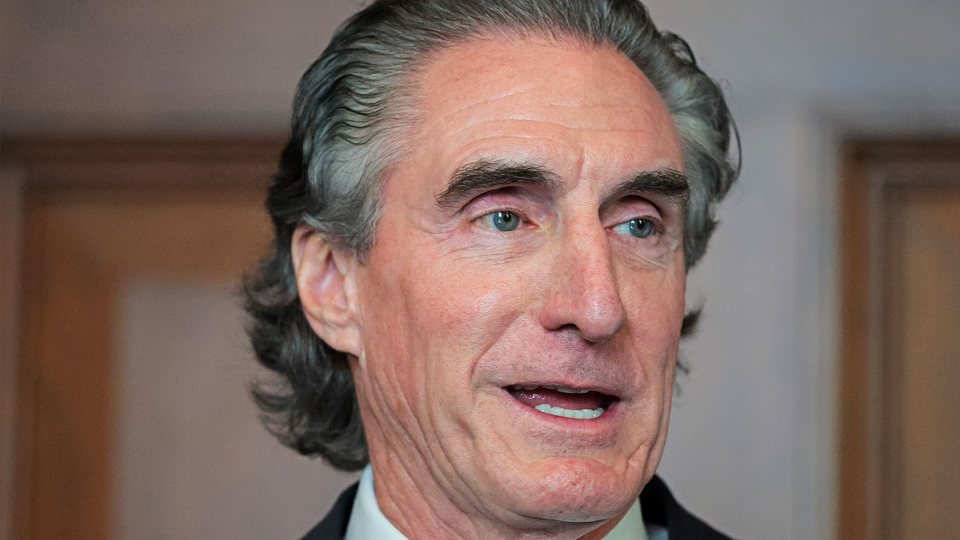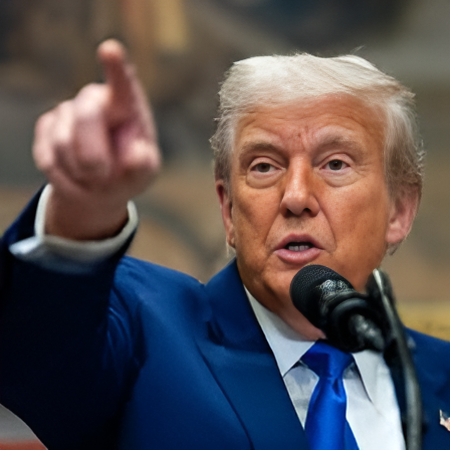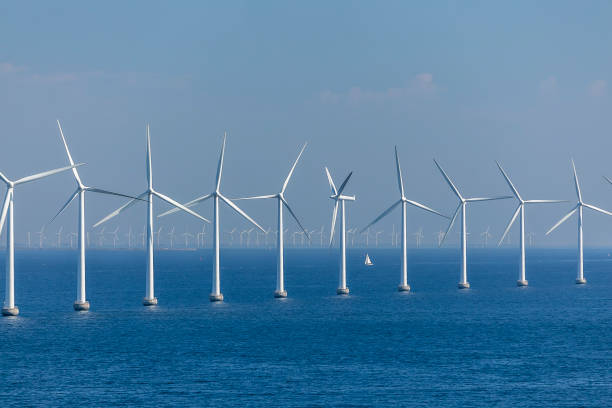The Trump administration has abruptly halted an offshore wind project already under construction off the coast of New York, which it has labeled “illegal,” with the Norwegian energy company Equinor behind the development. Equinor’s leadership is frustrated and concerned about what it sees as an unprecedented disruption to a fully approved project.
On April 16, U.S. Interior Secretary Doug Burgum issued a stay on Equinor, citing “serious flaws” in the project’s environmental review process and claiming that the approval was “rushed.”
“serious flaws” in the project’s environmental review process and claiming that the approval was “rushed.”
The $4.5 billion offshore wind venture, Empire Wind, was expected to provide clean energy to millions of New York homes.
The sudden political shift has rattled industry
The announcement has shocked both investors and clean energy analysts, even though it has long been clear that former President Donald Trump opposes offshore wind – having previously criticized it during his first term – and industry insiders have assumed that federal permits issued would be honored under the existing legal framework.

“There were some political risks to the industry, but shutting down a project in the middle of construction – especially after years of permitting – is really disruptive,” said one analyst. Several other offshore wind projects along the US East Coast are now being reviewed for potential risks, creating widespread uncertainty in the renewables sector.
Equinor: ‘Stop-work orders are illegal’
Two weeks after the stop-work order, Equinor said it had yet to receive a detailed explanation from the US Department of State.
“Our position is clear: the stop-work orders are illegal,” said Equinor CFO Torgrim Reitan. “We had all the necessary permits in place by last year. Construction, including port development and seabed preparation at the turbine site, had already begun.”
Our position is clear: the stop-work orders are illegal, — Torgrim Reitan
According to Reitan, more than 30% of the project is already complete. The company has invested more than $2.5 billion in the project — $1.5 billion of which was financed through debt — and expects strong returns over the next decade.
“It’s now a question of the sanctity of the deal,” Reitan added. “We invested in good faith and we are seriously considering our legal options.”
Questionable U.S. stability?
The suspension raises larger questions about political risk in the U.S. renewable energy market—questions typically related to countries experiencing political instability or regulatory chaos.
An analyst asked on the earnings call whether Equinor could face additional exposure to U.S. political risk. The company responded that it is confident in the broader U.S. energy market and is treating the situation as an isolated challenge involving “an asset and an investment.”
Still, the implications are significant. If federal authorities were to revoke permits through retroactive action without a clear reason, global energy companies could reconsider long-term commitments to U.S.-based projects.
Legal action under consideration
Equinor has not yet filed a lawsuit but said legal action is “under active consideration.” The Department of State has not publicly responded to Equinor’s complaint or media outlets’ requests for clarification.
Legal experts have noted that revoking existing federal permits midstream could face strong court challenges, especially given the scale of the investment and public interest involved in offshore wind development.
Market Reaction and Financial Impact
Equinor shares fell about 1% in midday trading after the earnings call. The shutdown of the Empire Wind project is not the only challenge facing the company. Equinor also reported weaker-than-expected financial results due to low oil prices and soft trading returns.
Earnings per share came in at 66 cents, below the 83 cents forecast by analysts.
Despite the headwinds, some in the financial community are optimistic that the project will resume. “Basically, we expect that the US administration will allow work on the project to resume soon, to avoid litigation,” wrote Citi analyst Alastair Syme.
A pivotal moment for US offshore wind
The fate of Equinor’s Empire Wind project could have far-reaching consequences—not just for the company but for the entire US offshore wind industry. This case is now being closely watched by both developers, investors and policymakers, as it could set a precedent for how future renewable energy projects will be treated under a changing political backdrop.
Significance of the policy
- Equinor Slams Trump-Era Wind Project Halt as ‘Unlawful’
- Project stoped Mid-Construction: Empire Wind, over 30% complete, abruptly stopped by U.S. Interior Department.
- Legal Dispute Looms: Equinor cites all permits were secured and calls the halt illegal; legal action under review.
- Having $2.5 billion at risk: Major investments already made—$1.5 billion in debt, $1 billion in equity.
- Investor confidence falters as industry worries; U.S. regultory stability questioned.
- Response U.S. government: No detailed explanation from State Department.
- Market Analysis: Equinor shares fall; analysts predict project could be scrapped to avoid lawsuits.


